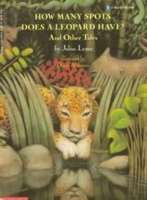
An illustrated collection of twelve folk tales, ten African and two Jewish.
Material appropriate for young adults

An illustrated collection of twelve folk tales, ten African and two Jewish.
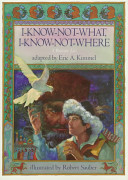
A retelling of a Russian fairy tale in which an archer assigned many dangerous quests by the greedy, cruel czar wins a crown and the woman of his dreams.
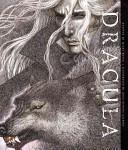
Enter the realm of Count Dracula! Bram Stoker’s masterpiece is adapted for a younger audience with all the sinister intrigue of the original novel. English solicitor Jonathan Harker is on a journey to see a new client–the enigmatic Count Dracula. But when the unfortunate Harker finds himself held prisoner in the count’s remote castle, he must use all his faculties to escape. With the help of Professor Van Helsing, can he prevent the evil that has been unleashed from destroying his world? Illuminated in all its gothic majesty through the vivid artwork of Anne Yvonne Gilbert, this new edition is adapted for younger readers but retains the mystery and shocking twists of Bram Stoker’s classic.
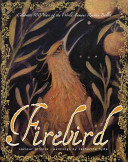
“In the shadow of King Vaslav’s Palace was a marvelous garden, and in the middle of that garden stood a tree that grew apples of solid gold, each one as dazzling as the sun.”Someone is stealing the king’s famous golden apples, and the culprit must be found. The palace gardener spots the luminous Firebird snatching the apples in the night. The king’s two oldest sons are sent to capture it but fail. So Ivan, the youngest son, must go on the dangerous quest, befriending a gray wolf, winning both the Firebird and the heart of the beautiful Princess Helen. Saviour Pirotta’s powerful retelling of this classic folktale plumbs the heart of human fears, courage, and love.
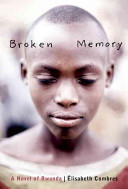
Hiding behind the old sofa, five-year-old Emma does not witness the murder of her mother, but she hears everything. And when the assassins finally leave, the young Tutsi girl somehow manages to stumble away from the scene, motivated only by the memory of her mother’s last words: “You must not die, Emma!” Taken in by an old Hutu woman, Mukecuru, Emma is still haunted by nightmares long after the war ends. When the country establishes gacaca courts to allow victims to face their tormenters in their villages, Emma is uneasy and afraid. But through her growing friendship with a young torture victim and the gentle encouragement of an old man charged with helping child survivors, Emma finds the courage to return to the house where her mother was killed and begin the journey to healing.
See the review at WOW Review, Volume 3, Issue 4
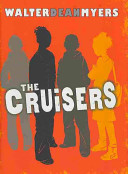
Zander and his friends, Kambui, LaShonda, and Bobbi start their own newspaper, The Cruiser, as a means for speaking out, keeping the peace, and expressing what they believe. When the school launches a mock Civil War, Zander and his friends are forced to consider the true meaning of democracy and what it costs to stand up for a cause. The result is nothing they could have expected, and everything they could have hoped for. Zander Scott and his friends, Kambui, LaShonda, and Bobbi are in trouble. Even though they’re students at DaVinci, one of the best Gifted and Talented schools in Harlem, their grades are slipping, and Mr. Culpepper, the Assistant Principal and Chief Executioner, is ready to be rid of them. When the school starts a unit on the Civil War, and kids split up into Union and Confederate sympathizers, Zander and his crew are given a charge to negotiate a peace between both sides before the war actually breaks out. That’s when Zander comes up with the idea to launch an alternative school newspaper called The Cruiser. What he and his friends learn is that their writing has power to keep the peace, but that words can be weapons, too. Soon everyone at DaVinci is forced to consider the true meaning of democracy and what it costs to stand up for a cause.
See the review at WOW Review, Volume 3, Issue 4
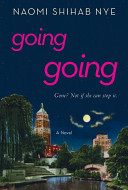
Florrie’s favorite coffee shop, with its open mike night, dreamy candles, and cute waiters … Going? The mysterious little hut selling fresh lemon ice on the west side of town … Going? The boutique featuring clothes you don’t find at the mall, allowing you to look like … an interesting person … Going? Individuality. Originality. Quality. Independence. Opportunity. Going, going, gone. What’s a girl to do?
See the review at WOW Review, Volume 3, Issue 4
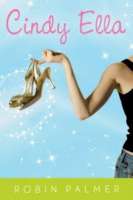
Prom fever has infected LA especially Cindys two annoying stepsisters, and her overly Botoxed stepmother. Cindy seems to be the only one immune to it all. But her anti-prom letter in the school newspaper does more to turn Cindy into Queen of the Freaks than close the gap between the popular kids and the rest of the students. Everyone thinks shes committed social suicide, except for her two best friends, the yoga goddess India and John Hughes worshipping Malcolm, and shockingly, the most popular senior at Castle Heights High and Cindys crush, Adam Silver. Suddenly Cindy starts to think that maybe her social life could have a happily ever after. But there’s still the rest of the school to deal with. With a little bit of help from an unexpected source and a fabulous pair of heels, Cindy realizes that she still has a chance at a happily ever after.

Elaborates on the events recounted in the fairy tale, “Rumpelstiltskin,” in which a strange little man helps a miller’s daughter spin straw into gold for the king on the condition that she will give him her first-born child.